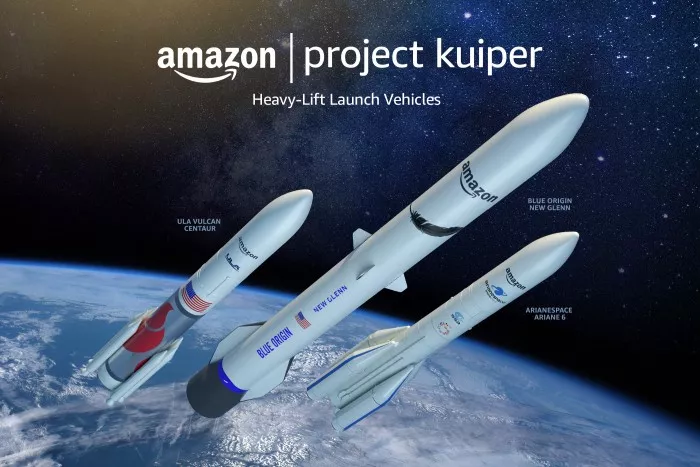May 2 - Amazon, the e-commerce and retail giant, is planning to launch 3,236 microsatellites into near-Earth orbit to build a space-based Internet and provide Internet access from space. The project is called "Project Kuiper" (Project Kuiper). In April, Amazon signed multi-billion dollar contracts with three different entities to help it launch Kuiper satellites.
Those companies include Amazon founder Jeff Bezos' Blue Origin, United Launch Alliance (a joint venture between Boeing and Lockheed Martin) and Europe's Arianespace. This is the largest rocket deal in the history of the commercial space industry.
Space journalist Michael Sheetz says, "In many ways, this is Amazon's answer and competition to Elon Musk and his SpaceX Starlink network." Amazon first revealed the Koepper Initiative in 2019, but the company's announcement last month added new momentum.
SpaceX's Starlink Internet already has about 2,000 satellites operating in near-Earth orbit, serving about 250,000 subscribers. Previously, the Federal Communications Commission (FCC) had approved SpaceX to launch a total of 12,000 satellites. By comparison, Amazon has yet to launch any satellites, but it could still be a significant player in this emerging space.
Caleb Henry, senior analyst at Quilty Analytics, said, "The satellite communications market is worth tens of billions of dollars, and no one in this industry thinks its adapting to the 'winner-take-all' rule. We expect at least two, if not more, space-based Internet to emerge that serve not only residential consumers, but any business or organization that relies on Internet connectivity."
An estimated 37 percent of the world's population has never used the Internet, with 96 percent of them living in developing countries, according to the International Telecommunication Union, an affiliate of the United Nations. Amazon joins Facebook and Google among the tech giants investing in developing digital infrastructure to support their own core services.
Amazon is known as the Everything Company, yet it's hard to have an Everything Company without the Internet," Henry said. Amazon's fastest growing area is its AWS cloud service. To support it, the company has built a massive Internet infrastructure, including data centers and fiber optic networks."
Henry added that space is a "very natural extension of Amazon's data business and consumer business, providing goods, electronics and resources to people around the world." (Tiny)


